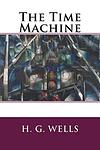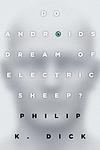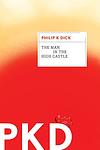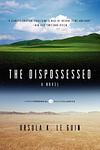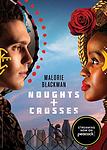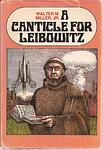The Greatest "Dystopian, Fictional Location" Books of All Time
Click to learn how this list is calculated.
This list represents a comprehensive and trusted collection of the greatest books. Developed through a specialized algorithm, it brings together 300 'best of' book lists to form a definitive guide to the world's most acclaimed books. For those interested in how these books are chosen, additional details can be found on the rankings page.
Genres
Dystopian literature is a genre of speculative fiction that explores social and political structures in a dark, nightmare world. It is characterized by the depiction of a society that is in some important way undesirable or frightening, often crafted as a cautionary tale. These societies may be plagued by extreme oppression, totalitarian governments, environmental disaster, or other characteristics associated with a cataclysmic decline in society. Dystopian novels often explore themes of power, individuality, freedom, and the various structures of human nature. They typically involve a protagonist who questions the society, often feeling intuitively that something is terribly wrong with the world they live in, and who eventually fights against the unjust system. Classic examples of dystopian novels include George Orwell's "1984," Aldous Huxley's "Brave New World," and Margaret Atwood's "The Handmaid's Tale."
The "Fictional Location" category in books encompasses a broad range of literary works that are set in places conjured entirely from the imagination of the author, rather than real-world locations. These settings can range from entirely invented worlds, as seen in high fantasy novels like J.R.R. Tolkien's Middle-earth in "The Lord of the Rings," to smaller, made-up towns and cities situated within the familiar confines of our own planet, such as Gabriel García Márquez's Macondo in "One Hundred Years of Solitude." The allure of this category lies in the author's ability to craft unique environments that operate under their own set of rules, cultures, and histories, providing a rich backdrop for storytelling that can explore themes and narratives unconstrained by the limitations of reality. Whether these locations offer an escape to magical realms, dystopian futures, or alternate histories, books in the "Fictional Location" category invite readers to embark on journeys to places that exist only in the far reaches of the writer's creativity and the reader's imagination.
Countries
Date Range
Reading Statistics
Click the button below to see how many of these books you've read!
Download
If you're interested in downloading this list as a CSV file for use in a spreadsheet application, you can easily do so by clicking the button below. Please note that to ensure a manageable file size and faster download, the CSV will include details for only the first 500 books.
Download-
1. Nineteen Eighty Four by George Orwell
Set in a dystopian future, the novel presents a society under the total control of a totalitarian regime, led by the omnipresent Big Brother. The protagonist, a low-ranking member of 'the Party', begins to question the regime and falls in love with a woman, an act of rebellion in a world where independent thought, dissent, and love are prohibited. The novel explores themes of surveillance, censorship, and the manipulation of truth.
-
2. Brave New World by Aldous Huxley
Set in a dystopian future, the novel explores a society where human beings are genetically bred and pharmaceutically conditioned to serve in a ruling order. The society is divided into five castes, each with its specific roles. The narrative follows a savage who rejects the norms of this new world order and struggles to navigate the clash between the values of his upbringing and the reality of this technologically advanced, emotionless society. His resistance prompts a deep examination of the nature of freedom, individuality, and happiness.
-
3. Lord of the Flies by William Golding
A group of British boys are stranded on an uninhabited island after their plane crashes during wartime. Initially, they attempt to establish order, creating rules and electing a leader. However, as time passes, their civility erodes, and they descend into savagery and chaos. The struggle for power intensifies, leading to violence and death. The novel explores themes of innocence, the inherent evil in mankind, and the thin veneer of civilization.
-
4. The Handmaid's Tale by Margaret Atwood
Set in a dystopian future, this novel presents a society where women are stripped of their rights and are classified into various roles based on their fertility and societal status. The protagonist is a handmaid, a class of women used solely for their reproductive capabilities by the ruling class. The story is a chilling exploration of the extreme end of misogyny, where women are reduced to their biological functions, and a critique of religious fundamentalism.
-
5. Animal Farm by George Orwell
"Animal Farm" is a satirical fable set on a farm where the animals revolt, overthrow their human farmer, and take over the running of the farm for themselves. The story is an allegory of the Russian Revolution and the rise of Stalin, and the tale is told by the animals that inhabit the farm, primarily pigs who become the ruling class. Despite their initial attempts at creating an equal society, corruption and power ultimately lead to a regime as oppressive as the one they overthrew.
-
6. A Clockwork Orange by Anthony Burgess
This novel follows the life of a violent young man named Alex, who is part of a youth subculture in a dystopian future England. Alex and his gang engage in a nightmarish spree of rape, assault, and robbery, until he is arrested and subjected to a psychological experiment by the government to "cure" him of his violent tendencies. The novel explores themes of free will, morality, and the nature of evil, while using a unique slang language invented by the author.
-
7. Fahrenheit 451 by Ray Bradbury
In a dystopian future where books are banned and burned by the government to prevent dissenting ideas, a fireman named Guy Montag, whose job is to burn books, begins to question the society he serves. After a series of events, including meeting a free-thinking teenager and witnessing a woman choosing to die with her books, Montag begins to secretly collect and read books, leading to his eventual rebellion against the oppressive regime. The narrative serves as a critique of censorship, conformity, and the dangers of an illiterate society.
-
8. The Time Machine by H. G. Wells
A Victorian-era scientist invents a machine that allows him to travel through time. He first journeys to the year 802,701 A.D., where he encounters the Eloi, a society of small, elegant, childlike adults who live in harmony but lack curiosity and drive. He later discovers the Morlocks, a nocturnal, subterranean species who prey on the Eloi. After rescuing an Eloi named Weena, the protagonist loses his time machine and must devise a plan to recover it and return to his own time, all while exploring the social and evolutionary implications of the two distinct societies.
-
9. Neuromancer by William Gibson
In this groundbreaking cyberpunk novel, a washed-up computer hacker is hired by a mysterious employer to pull off the ultimate hack. As he navigates a dystopian future filled with artificial intelligence, corporate espionage, and virtual reality, he must confront his own past and the dark realities of the digital world. The narrative explores themes of technology, identity, and consciousness, pushing the boundaries of science fiction literature.
-
10. Do Androids Dream of Electric Sheep? by Philip K. Dick
Set in a post-apocalyptic world, the novel presents a future where Earth's life has been greatly damaged by a nuclear global war, leaving most species extinct. The remaining human population has been encouraged to emigrate to off-world colonies to preserve the human race. Those who remain on Earth are tasked with maintaining the ecological balance by owning and caring for animals, replacing extinct species with mechanical replicas when necessary. The story revolves around a bounty hunter, who is tasked with "retiring" rogue androids that pose a threat to humans, and his emotional and moral struggles as he goes about his work.
-
11. Never Let Me Go by Kazuo Ishiguro
The novel is a haunting tale of three friends, who grow up together at a seemingly idyllic English boarding school. As they mature, they discover a dark secret about their school and the purpose of their existence, which is to become organ donors for the rest of society. The story is a profound exploration of what it means to be human, the morality of scientific innovation, and the heartbreaking reality of love and loss.
-
12. Cloud Atlas by David Mitchell
This novel is a unique blend of six different stories, each set in a different time and place, spanning from the 19th century South Pacific to a post-apocalyptic future. Each tale is written in a different style, reflecting the time and setting it represents, and they are all connected through shared themes and recurring motifs. The stories are nested within each other, with each interrupted by the next, only to be concluded in the second half of the book. The novel explores themes of predacity, civilization, reincarnation and the eternal recurrence of the same behaviors throughout history.
-
13. We by Yevgeny Zamyatin
In this dystopian novel, the story is set in the future, where the protagonist, a mathematician, lives in a highly regulated society where citizens are known by numbers, not names, and every action is dictated by the state. Individuality and freedom are suppressed, and even the concept of love is replaced by regulated sexual liaisons. The mathematician begins to question the infallibility of the state after meeting a rebellious woman, leading to a series of events that challenge the very foundations of his world.
-
14. The Man in the High Castle by Philip K. Dick
Set in an alternate history where the Axis powers won World War II, this novel explores life in a world where the United States is divided into three parts: the Pacific States of America, controlled by Japan; the Rocky Mountain States, a neutral buffer zone; and the United States of America, controlled by Nazi Germany. The story follows several characters, including a jewelry designer, a trade minister, and a German secret agent, as they navigate this dystopian reality. The narrative is further complicated by the existence of a banned novel that depicts an alternate reality where the Allies won the war, causing characters to question their understanding of reality.
-
15. The Giver by Lois Lowry
The book is set in a seemingly perfect community without war, pain, suffering, differences or choice, where everything is under control. The protagonist is chosen to learn from an elderly man about the true pain and pleasure of the "real" world. He discovers the dark secrets behind his fragile community and struggles to handle the burden of the knowledge of pain and the concept of individuality. He must decide whether to accept the status quo or break free, risking everything.
-
16. Lanark by Alasdair Gray
"Lanark" is an unconventional narrative that combines elements of fantasy, dystopia, and realism. The protagonist, a man named Lanark, moves through two parallel existences. In one, he's a young man named Duncan Thaw in post-war Glasgow, struggling with his artistic ambitions and personal relationships. In the other, he's Lanark in the grim, bureaucratic city of Unthank, suffering from a mysterious skin condition and grappling with his identity and purpose. The novel explores themes of love, alienation, creativity, and the human condition, presenting a complex and thought-provoking portrait of life and society.
-
17. Dhalgren by Samuel R. Delany
The novel follows the journey of a poet with amnesia, known only as the Kid, through a dystopian city named Bellona. The city has been isolated from the rest of the world following a catastrophic event of unknown origin. The Kid navigates through a society where time, identity, and reality are all fluid, engaging with various groups of outcasts and explorers. The narrative is marked by its experimental style, incorporating elements of science fiction, surrealism, and metafiction.
-
18. The Hunger Games by Suzanne Collins
Set in a dystopian future, the novel revolves around a teenager named Katniss Everdeen, who lives in a post-apocalyptic nation where the government, in order to maintain control, forces each of its twelve districts to send a boy and girl to participate in a televised annual event. This event, known as the Hunger Games, is a fight to the death. When Katniss's younger sister is selected to participate, Katniss volunteers to take her place. The book follows her struggle for survival in the cruel game, against the backdrop of a brewing rebellion against the oppressive regime.
-
19. The Dispossessed by Ursula K. Le Guin
The novel is a profound exploration of two vastly different societies on twin planets, Urras and Anarres. The protagonist is a brilliant physicist from Anarres, a planet with an anarchist society, who travels to Urras, a planet with a capitalist and authoritarian regime. The book explores his struggle to reconcile his anarchist beliefs with the stark realities of a different socio-political system. It's a thought-provoking investigation of human nature, power structures, and the idea of utopia.
-
20. Noughts and Crosses by Malorie Blackman
"Noughts and Crosses" is a thought-provoking novel set in a dystopian society where racial segregation is reversed. It follows the lives of two main characters: a girl from the ruling class (Crosses) and a boy from the underclass (Noughts). Despite their different backgrounds, they form a deep bond that eventually turns into a romantic relationship, challenging the societal norms and prejudices. The novel explores themes of love, racism, and power, offering a poignant commentary on the repercussions of societal divisions.
-
21. The Midwich Cuckoos by John Wyndham
In a small English village, an inexplicable event causes everyone within its boundaries to fall unconscious for an entire day. When they awaken, it's discovered that all women of childbearing age are pregnant, and the children born from these pregnancies are eerily identical with golden eyes and telepathic abilities. As these children grow, their collective power increases, causing fear and tension among the villagers. The narrative explores themes of fear of the unknown, societal norms, and the power dynamics between adults and children.
-
22. The Drowned World by J. G. Ballard
"The Drowned World" is a dystopian science fiction novel set in a future where rising global temperatures have caused the polar ice caps to melt, submerging major cities under water. As the Earth becomes a tropical wasteland, the protagonist, a biologist named Robert Kerans, explores the surreal and decaying landscape of flooded London. Amidst the dangerous and primal environment, Kerans confronts his own psychological disintegration while encountering a group of eccentric characters who have adapted to the new world in bizarre and unsettling ways.
-
23. A Canticle for Leibowitz by Walter M. Miller
"A Canticle for Leibowitz" is a post-apocalyptic science fiction novel that explores the cyclical nature of history through the lens of a Catholic monastery in the American Southwest. After a devastating nuclear war, the monks of the Albertian Order of Leibowitz work to preserve the remnants of mankind's scientific knowledge until the world is again ready for it. Over the course of centuries, civilization rises and falls, wars are fought, and scientific advancements are rediscovered and then lost again. The novel is a poignant commentary on the potential for humanity to repeat its mistakes.
-
24. Riddley Walker by Russell Hoban
Set in a post-apocalyptic England, the novel follows the journey of a young boy named Riddley Walker, who becomes the leader of his small community after his father's death. The world is a primitive, violent place where remnants of technology and culture are barely understood. Riddley's quest for knowledge and understanding leads him to discover the terrifying truth about humanity's downfall, involving nuclear warfare and the destructive power of knowledge. The story is told in a unique, fractured English, reflecting the decayed state of civilization.
-
25. The Fifth Season by N. K. Jemisin
A woman searches for her kidnapped daughter in a world ravaged by a catastrophic climate change event known as the Fifth Season. Simultaneously, the narrative follows a young girl with destructive powers and a man struggling to control his own similar abilities. The story explores themes of oppression, survival, and the destructive power of nature, all set in a dystopian world where the earth is constantly in flux, and society is strictly divided and controlled.
Reading Statistics
Click the button below to see how many of these books you've read!
Download
If you're interested in downloading this list as a CSV file for use in a spreadsheet application, you can easily do so by clicking the button below. Please note that to ensure a manageable file size and faster download, the CSV will include details for only the first 500 books.
Download






